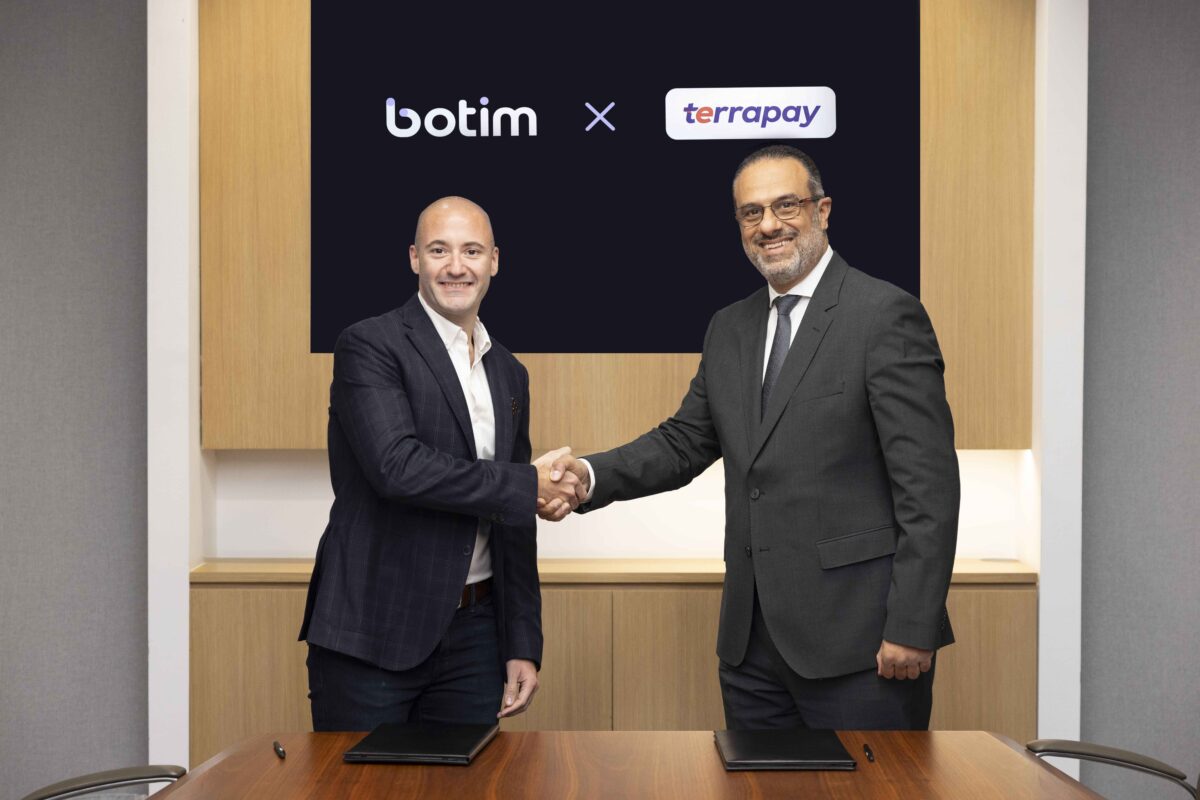From left to right: Ruben Brave is a serial tech entrepreneur and Kimberly Ofori is Director of the Entrepreneurship Lab & Launchpad | Image Credit: DNNL
Startups have dramatically changed our life. From how we connect with new people, order things online, get from point A to point B, to purchasing medicines, startups have made an impact in every aspect.
In addition to transforming our life for good, startups also promised to change representation compared to other big organisations.
In reality, big organisations are making more progress with diversity and inclusion than startups, which have leadership that fit in the conventional mould defined by societal norms.
Finding diverse leaders is even more difficult in the Dutch tech ecosystem, which has only seen decline in representation compared to the European tech ecosystem.
Now, one organisation is tasked with improving diversity and inclusion (D&I) in the Dutch startup and it’s called the Dutch New Narrative Lab (DNNL).
Inception of DNNL
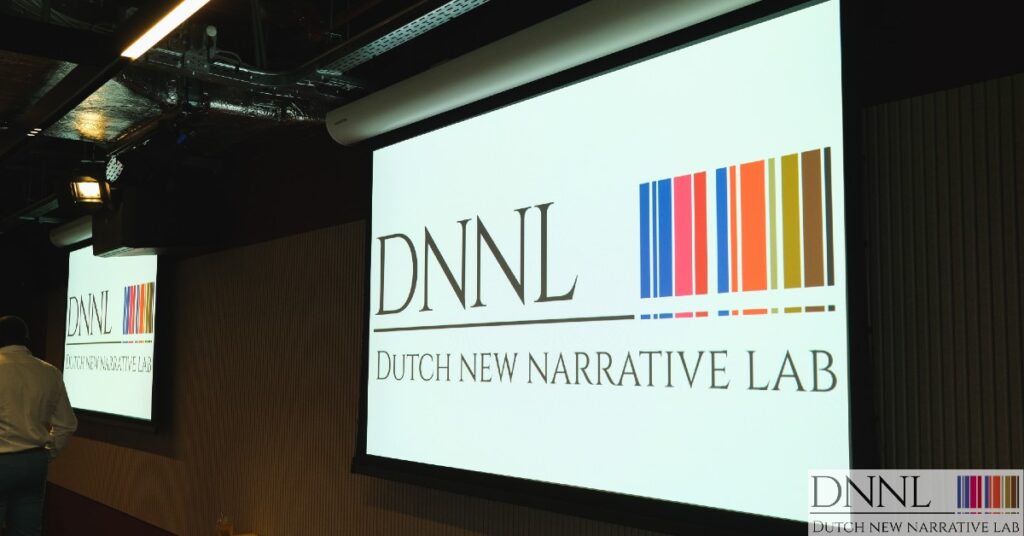
The DNNL was born as an initiative out of a Diversity Exploration commissioned by the Dutch Ministry of Economic Affairs and Climate (EZK).
![]()
This exploration was in response to a 2020 article discussing boardroom racism and Ruben Brave, a serial tech entrepreneur, investor, and multi-board member, was tasked with exploring how the government could contribute to improving diversity and inclusion (D&I) in the ecosystem of innovative entrepreneurship, including startups, scale-ups, and corporate ventures.
Brave says he expected to have around 20 conversations as part of this exploration but the effort involved “more than 350 personal and intense conversations.”
“These conversations included not only individuals from diverse ethnic backgrounds but also women from non-traditional backgrounds, members of the LGBTQ+ community, disabled individuals, and people with diverse talents and perspectives,” he explains.
He further adds that these conversations led to several key recommendations aimed at unlocking entrepreneurial talent and improving access to various forms of capital.
Brave makes it clear that the capital is not just restricted to financial capital but also cultural capital (such as language skills required for successful financing applications), symbolic capital (access to greater visibility and recognition for achievements), and social capital (access to networks with new resources and knowledge).
It is remarkable that the ministry is not only observing the lack of diversity in the Dutch tech ecosystem but has taken the matter into its own hands to address this gap.
It is doing so by establishing a robust data infrastructure to measure the exclusion of talent and by empowering individuals to take initiative themselves.
With the goal of fostering greater equity and opportunity for all, Brave says, “The exploration underscored the need for greater transparency in tracking progress toward D&I within organisations, particularly those receiving public funds and government support.”
Helping the underrepresented groups
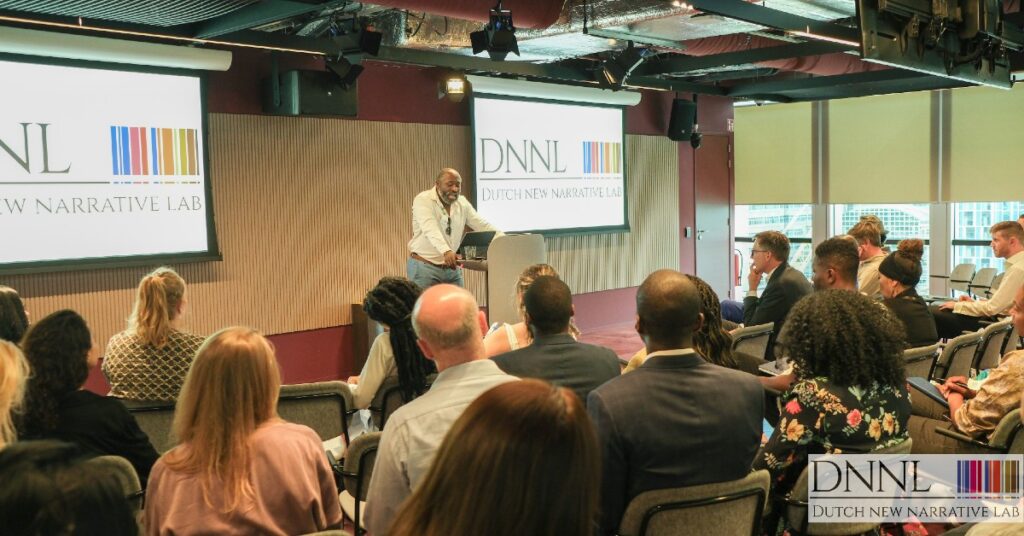
The Dutch D&I in Digital Benchmark 2023 is a stark reminder of how companies and the Dutch tech ecosystem has done little to move the needle on diversity and inclusion.
With total women in Dutch tech declining from 38 per cent in 2022 to 37 per cent in 2023 and a decline of 2 percentage points when it comes to women in tech roles, the benchmark is an eye opener.
The fact that only 25 per cent of managers agreed to having D&I objectives or KPIs in their performance measures is a sign for the need to completely rethink the efforts in this space.
Brave argues that this decline in representation seen in the benchmark report can be attributed to implicit bias in decision-making & culture and retractive movement from underrepresented groups.
While issues related to hiring practices, educational gaps, company traditions, and even non-representative leadership can be addressed, Brave is concerned about “non-inclusive narrative around innovative entrepreneurship which leads to retention challenges, gender disparities and disconnects between networks of groups within society.”
DNNL is thus focusing on improving access to innovative entrepreneurship for all underrepresented groups within the Dutch startups and tech ecosystem.
“DNNL’s mission is rooted in recognising the innovative power of diversity and inclusion,” Brave affirms.
It does this by increasing the visibility of underrepresented groups through innovation challenges like Deloitte Fast 50 Rising Star, ESDP Innovation Challenge, Women of the Future – 50 Rising Stars in ESG in London, Impactful Grower Award NLGroeit/Erasmus University – Top 250 Growth Companies 2023, Women in Tech Awards Europe 2023, SheLeads 2023, and Amsterdam Science & Innovation Award.
Brave says, “These challenges provide a platform for showcasing the work and innovations of diverse entrepreneurs.”
It also has an entrepreneurship lab where DNNL provides mentoring, business development, valorisation, and funding matching services for ventures led by underrepresented founders.
And through its event DNNL unConferences, the initiative facilitates networking among stakeholders and provides a platform for sharing inspirational entrepreneurship.
It also collects feedback from underrepresented founders to identify barriers in the ecosystem and collaborates with the OECD to make it valuable input for policymakers at various levels.
“DNNL plays a pivotal role in creating opportunities, increasing visibility, and fostering inclusivity for underrepresented groups within the Dutch startup and tech ecosystem through a multi-pronged approach that involves collaboration with diverse stakeholders and organisations,” argues Brave.
DNNL Launchpad
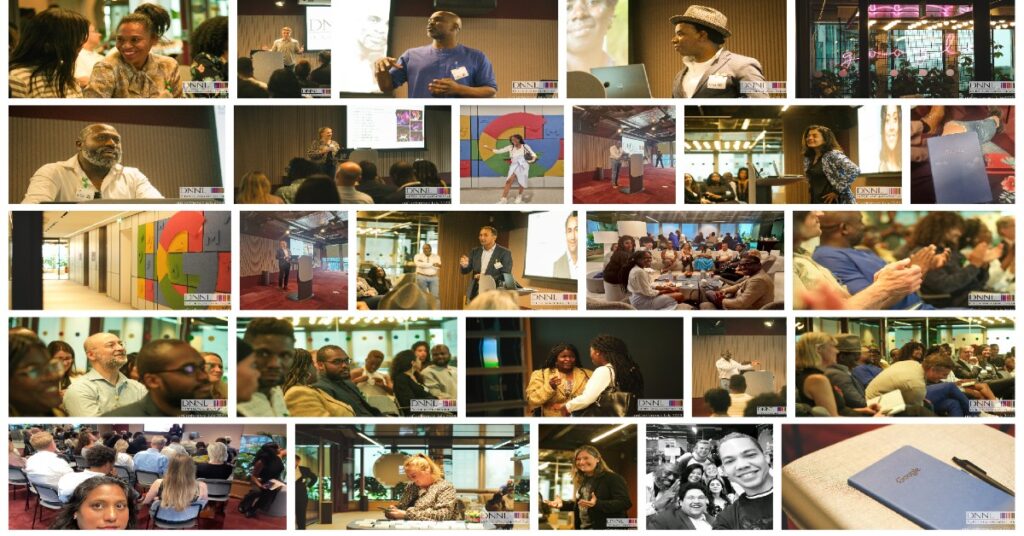
From strengthening seed capital regulation, legislation for inclusive procurement, to national action plan for inclusive entrepreneurship, DNNL is calling for big changes to help underrepresented groups.
Now, it is taking a step further with the launch of a 12-week pre-accelerator programme in Amsterdam called DNNL Launchpad.
The Launchpad is designed to put the development of entrepreneurial skills as founders first and applications for the programme are open till September 22. Click here to apply for DNNL Launchpad.
DNNL Launchpad comes at a juncture when it is evident that the path to building a successful business in the Netherlands or Europe favours only an exclusive few.
“Given the large number of economical, environmental and social challenges that we face today, we simply need more people to be able to get access to the resources they need to help solve them,” says Kimberly Ofori, Director of the Entrepreneurship Lab & Launchpad.
Ofori, who is one of the partners at Dutch New Narrative Lab, sees a large pool of untapped potential and talent and says this pool includes the types of founders who prove to be the most resilient, an important skill for any founder.
Unlike the Silicon Valley model that focuses on building unicorns, the Launchpad will aim to turn these entrepreneurs and their startups into camels, which can survive for long periods in extremely adverse conditions.
Ofori explains, “Startup camel enterprises offer businesses in all industries and sectors valuable lessons on how to survive and grow in adverse conditions.”
“They do this with three strategies in mind: they execute balanced growth; they take a long-term outlook; and they weave diversification into the business model,” she adds.
As a traction driven accelerator, Ofori says DNNL Launchpad will focus on startups with strong business cases, working business models, self sustaining business generating sales, and those with revenue first model.
“Our thesis is to let your customers be your first investors,” she quips.
In addition to this, the Launchpad will also be home to entrepreneurs who did not envision this path in the first place but decided to walk the path of entrepreneurship “to solve a bigger problem that has affected them personally.”
Founder journey and real diversity
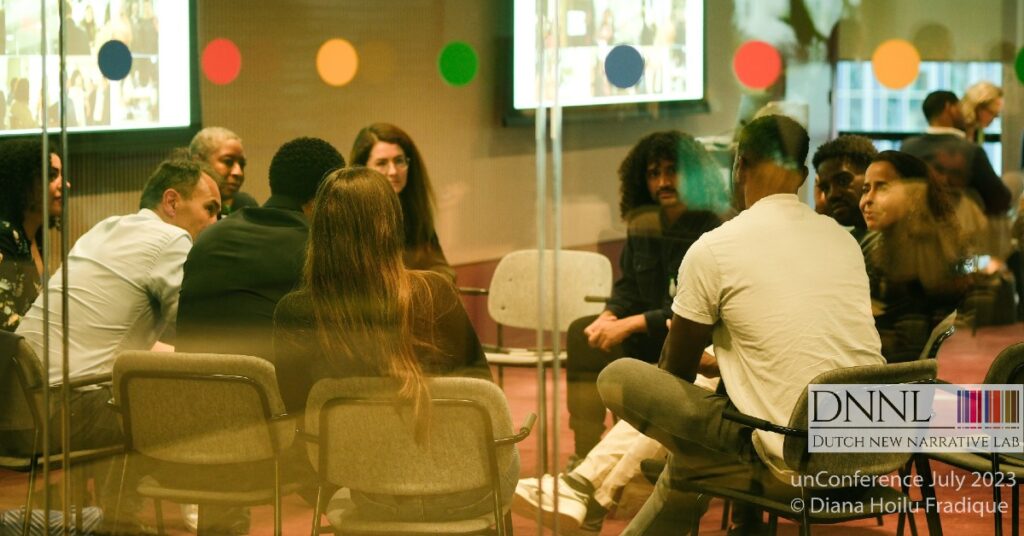
“We [DNNL] believe,” Ofori says, “strong founders build strong businesses.” She says the Launchpad will have a razor sharp focus on the founder journey by looking at both personal and entrepreneurial skill development of the founder.
The programme will help the selected founders get their proposition iron sharp, build in scalability, and get them to a revenue growth stage.
It is a tall order but Ofori acknowledges that the response has been “overwhelmingly” positive.
“Most startup operators recognise the gap we are looking to fill,” she says, adding, “and we have already been approached by other accelerators to discuss collaborations.”
She further notes that founders have mostly been enthusiastic about the programme’s revenue first focus and the ability to get high quality support while still being able to build on their own terms.
In order to make the process of joining Launchpad both smooth and accessible, DNNL is offering a 15 minute intake option with Ofori, where she will answer any questions that founders may have before they apply.
This is followed by a formal application and selected founders are then invited for a final interview. Ofori clarifies that they are currently admitting founders on a rolling basis until September 22, 2023.
One of the key factors that Ofori is looking for in startups being selected for Launchpad is real diversity in founding teams.
She says they have followed the development and growth of mature startup ecosystems like the US and there is data showing that diverse teams outperform non-diverse teams in almost all areas.
At DNNL, this diversity goes beyond thought and also looks at diversity in terms of gender, cultural background, work and life experience, physical abilities, et cetera.
She says, “Diverse teams will solve problems that affect a larger group of the population because they represent them, and all these different perspectives on how to make things better for everyone.”
To reach this diversity goal, DNNL is looking at each individual story, their background and what makes these founders distinctly unique.
“Within their teams we will look for alignment in vision and purpose but coming from different backgrounds and what makes them uniquely qualified for their roles,” she further notes.
A diverse Dutch tech ecosystem
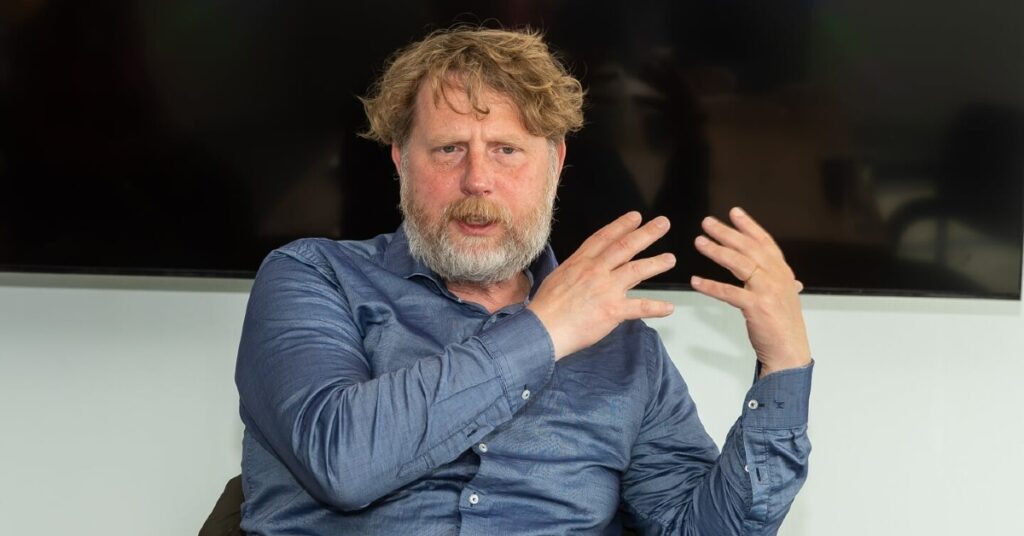
Ofori wants everyone to know that the goal of DNNL Launchpad is to build the businesses the world needs today and together, it is possible.
In order to make that possible, she wants to hear from founders building a more-than-profit business that has the potential to impact at scale, have a unique founder story, and want to build their business on their own terms for the long haul.
The applications for DNNL Launchpad are open till September 22 and the announcement of the cohort of selected founders will be on September 29.
DNNL Launchpad programme will kick off on October 5 with bi-weekly live days, expert sessions, and events. The first expert day on strategy is scheduled for October 12 while the expert day on funding is set for November 2.
The final expert day will be on growth and scaling on November 23 before the programme wraps up with demo day on December 7.
DNNL doesn’t plan to stop there and will offer extended support on go-to market strategy and investor negotiations till early next year.
With the first cohort almost close to being announced, Ofori says they will run another large cohort in 2024 and plans to grow to two cohorts per year from 2025.
At the time of writing, DNNL is only focusing on making investor connections and getting involved in investor conversations.
However, in the future, DNNL is exploring the possibility of providing direct funding to cohorts of its Launchpad programme.
With the Launchpad, DNNL is equipping a previously overlooked pool of high potential founders and preparing them for the next stage of growth.
Ofori says this initiative will lead to diversifying investor pipelines with high potential startups, facilitating later stage accelerator programmes with a more diversely talented founder and startup base.
“The Launchpad adds tangible value to the overall Dutch economy by creating jobs while providing a wider range of solutions that benefit us all today and future generations to come,” she says.
…your recruitment or product development with our curated community partners!


































